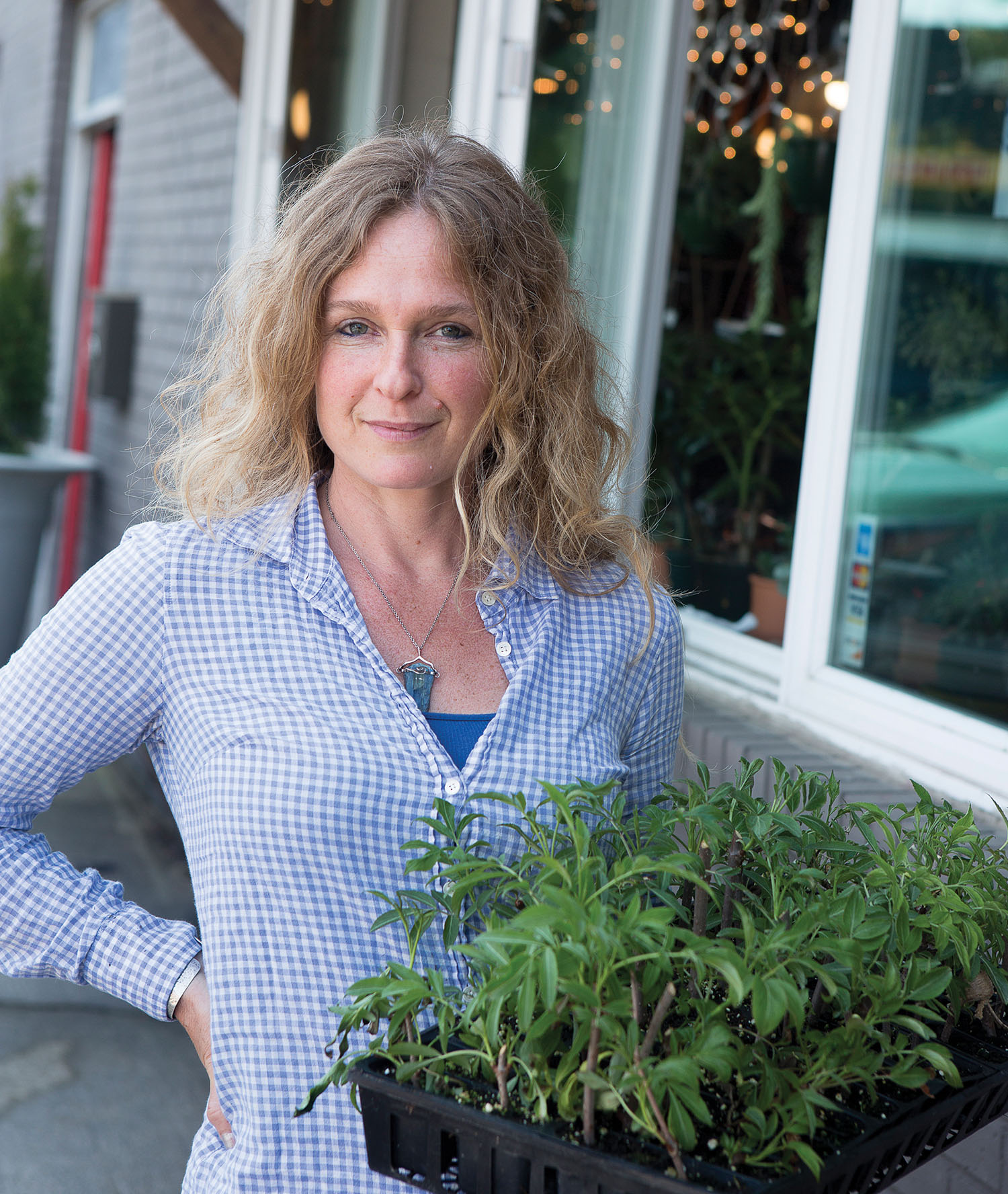
It’s only natural that the Asheville Herb Festival blossomed into the biggest event of its kind on the continent — because the land that nourishes the three-day affair is one of the most biodiverse regions on earth. And so “the diversity of growers in our area organically arises,” notes Amy Hamilton, owner of Appalachian Seeds Farm & Nursery, located in the rural Sandy Mush community northwest of Asheville.
The festival made a name for itself early on via such diversity. Now, decades in and riding the rise of local-food awareness, the expanding small-farm scene, and a general increase in knowledge about sustainable agriculture, “the momentum just grew,” says Hamilton.
Appalachian Seeds wholesales its products through the French Broad Food Co-op, Earth Fare, and Villagers in Asheville; B.B. Barns in Arden; The Garden Spot in Fairview; Roots & Fruits Organic Market in Black Mountain; and at the Hendersonville Community Co-op. Hamilton also sells to individuals through her company’s website — but the yearly herb festival, held at the WNC Farmers Market, is the only physical place where she retails, joined by more than 60 other southern-mountain vendors. The event, turning 28 this year, typically draws some 35,000 attendees and includes educational efforts — this season, information on drought-resistant landscaping in the region’s changing climate is a major topic.
“I’ve grown up going to the festival,” remarks one nostalgic commenter on the festival’s Facebook site. Social media certainly helps herb growers get the word out in real time, especially in spring, with new life breaking the soil daily. Earlier in the season, on her own page, Hamilton posted a closeup of one of her hundreds of seedlings of Gotu Kola (an herb used in various alternative-healing disciplines). “They take on average three months to germinate when you sow them yourself,” she wrote in late March. “But I’ve learned to just leave the plants undisturbed in their pots all year, bring them in for the winter, and they self-sow. Look at the first true leaf — all scalloped and firm. This plant has my heart completely.”
Extracts of echinacea and elderberry help protect immunity; pesto can’t happen without fresh basil. Lavender gets equated with massage oil, but its inclusion in gourmet desserts is by now almost common. The uses for herbs may be nearly as abundant as their natural occurrence, but the strict separation of culinary and medicinal applications is becoming passé; Hamilton encourages a progressive approach that actually dates back forever. She quotes: “Hippocrates said, ‘Let food be your medicine and let medicine be your food.’”
It’s all about potency, she adds, “not hard-and-fast categories.” The grower points out that many traditional culinary herbs, such as rosemary, thyme, and oregano, can have antibiotic effects in higher doses. But even used “just” as a spice, if sprinkled regularly enough, “[they] can augment digestion and promote well being,” she says. More dedicated adherents of herbal medicine might make a strong infusion of chamomile flowers and catnip to treat a stomachache.
All plants, she says, “fall into a spectrum of action.” On one end their intention is “nutritive” — on the other end, they can be “a potent agent of physiological change toward healing.”
The Asheville Herb Festival runs May 5-7 at the WNC Farmers Market (570 Brevard Road). Hours are 8:30am-5pm Friday and Saturday, 10am-3pm Sunday. See ashevilleherbfestival.org for more information.

I buy something every year from Appalachian Seeds (aka Amy) – either the herb festival or Earth Fare or the Hendersonville co-op. it’s a brand I seek out every year, and the plants always deliver!